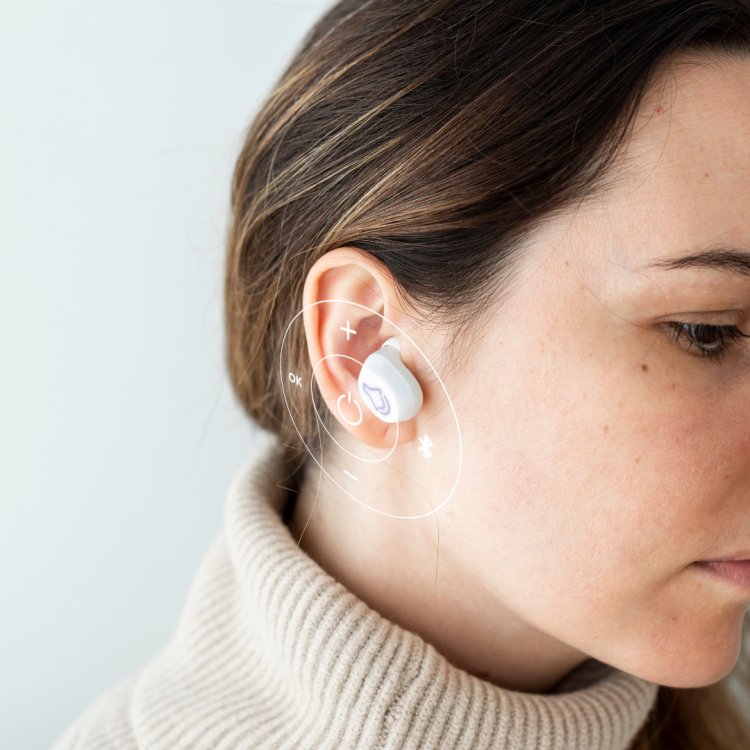The Role of Pocket Hearing Aids in Addressing Mild to Severe Hearing Loss
Discover how pocket hearing aids help individuals with mild to severe hearing loss. Learn about their benefits, features, and why they are a cost-effective alternative to traditional hearing aids.

Hearing loss affects millions worldwide, making communication difficult and impacting daily life. Fortunately, hearing aid technology has evolved, offering different solutions for varying degrees of hearing impairment. Among these options, pocket hearing aids stand out as an affordable and effective choice for individuals with mild to severe hearing loss.
Pocket hearing aids are designed to amplify sound efficiently while offering ease of use, making them particularly beneficial for seniors and those with dexterity issues. In this article, we’ll explore how pocket hearing aids work, their benefits, and why they remain a reliable option for addressing different levels of hearing loss.
What Are Pocket Hearing Aids?
Pocket hearing aids are portable, battery-operated devices that consist of two main components:
-
A small pocket-sized amplifier that captures and processes sound.
-
Earphones or a receiver that delivers amplified sound directly into the ear.
Unlike traditional behind-the-ear (BTE) or in-the-ear (ITE) hearing aids, pocket hearing aids feature external components connected by a wire, allowing for greater amplification and sound clarity for individuals with more severe hearing loss.
How Pocket Hearing Aids Help in Different Stages of Hearing Loss
1. Mild Hearing Loss
Mild hearing loss can make it difficult to hear soft sounds, such as whispers or background noise. Individuals with this level of hearing impairment often struggle in group conversations or noisy environments.
✅ How Pocket Hearing Aids Help:
-
Amplify soft sounds without overwhelming background noise.
-
Provide an easy-to-use, cost-effective alternative to smaller digital hearing aids.
-
Allow users to adjust volume levels as needed.
2. Moderate Hearing Loss
People with moderate hearing loss may struggle to follow conversations, especially over the phone or in loud settings.
✅ How Pocket Hearing Aids Help:
-
It offers stronger amplification than smaller hearing aids.
-
Improve speech clarity and reduce strain when talking to others.
-
It works well for individuals who may not be comfortable with fully in-ear devices.
3. Severe Hearing Loss
Severe hearing loss makes it nearly impossible to hear normal speech without assistance. This level of hearing loss often requires powerful amplification and specialized devices.
✅ How Pocket Hearing Aids Help:
-
Provides higher sound amplification than most in-ear hearing aids.It
-
Features larger controls for easy volume adjustment, making them ideal for seniors.
-
Can be connected to external microphones to enhance sound capture in large gatherings or public spaces.
Key Benefits of Pocket Hearing Aids
1. High-Power Amplification
One of the main reasons pocket hearing aids are popular is their ability to deliver strong sound amplification, making them effective for severe hearing loss cases.
2. Easy Volume Control
Unlike smaller hearing aids, pocket hearing aids come with larger, easy-to-access buttons or dials for volume adjustment, allowing users to control their hearing experience effortlessly.
3. Cost-Effective Solution
Pocket hearing aids are generally more affordable than high-end digital hearing aids, making them a practical choice for individuals who need powerful amplification without the high cost.
4. Long Battery Life
Since the main unit is larger than in-ear hearing aids, pocket hearing aids tend to have better battery life, reducing the need for frequent replacements or recharging.
5. Ideal for Elderly Users
Pocket hearing aids are often recommended for elderly individuals who may have difficulty handling small devices due to arthritis or reduced dexterity.
Limitations of Pocket Hearing Aids
While pocket hearing aids offer many advantages, they do have some drawbacks:
???? Bulkier than modern digital hearing aids – Since they require an external amplifier, they may not be as discreet as in-ear devices.
???? Wired connection to the receiver: The earphones are connected to the main unit by a wire, which some users may find inconvenient.
???? Less advanced noise cancellation – While they amplify sound well, they may not filter out background noise as effectively as some high-end digital hearing aids.
Who Should Use Pocket Hearing Aids?
-
Seniors who need easy-to-use hearing aids with simple controls.
-
Individuals with moderate to severe hearing loss who require stronger amplification.
-
Those looking for a budget-friendly alternative to expensive hearing aids.
-
Users who prefer external volume control over tiny in-ear adjustments.
Conclusion
Pocket hearing aids play a crucial role in addressing mild to severe hearing loss by offering strong amplification, affordability, and ease of use. While they may not be as compact as modern digital hearing aids, their high performance and user-friendly design make them an excellent choice for many individuals.
If you or a loved one is struggling with hearing loss, consider trying pocket hearing aids as a reliable and effective solution for improved hearing and quality of life.
What's Your Reaction?


















